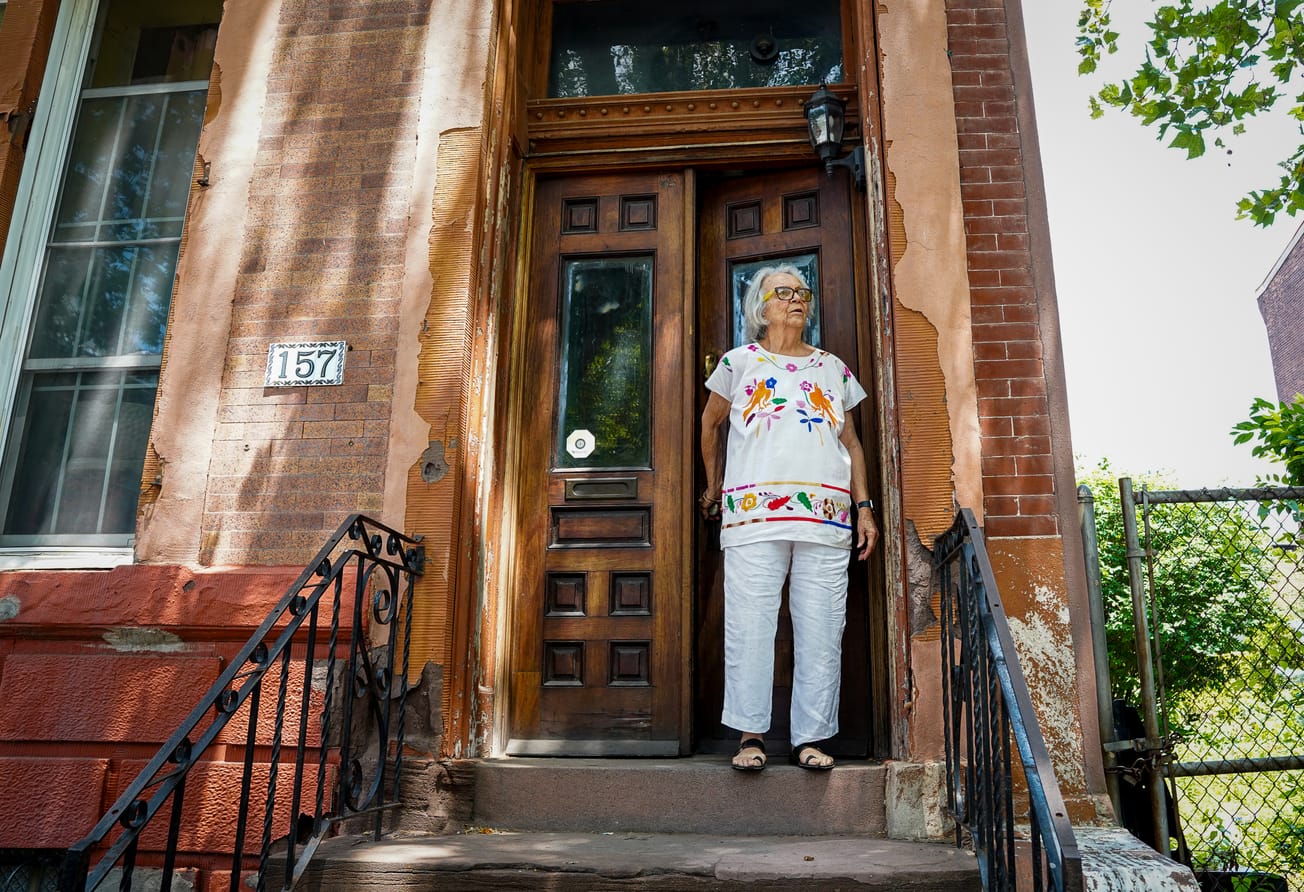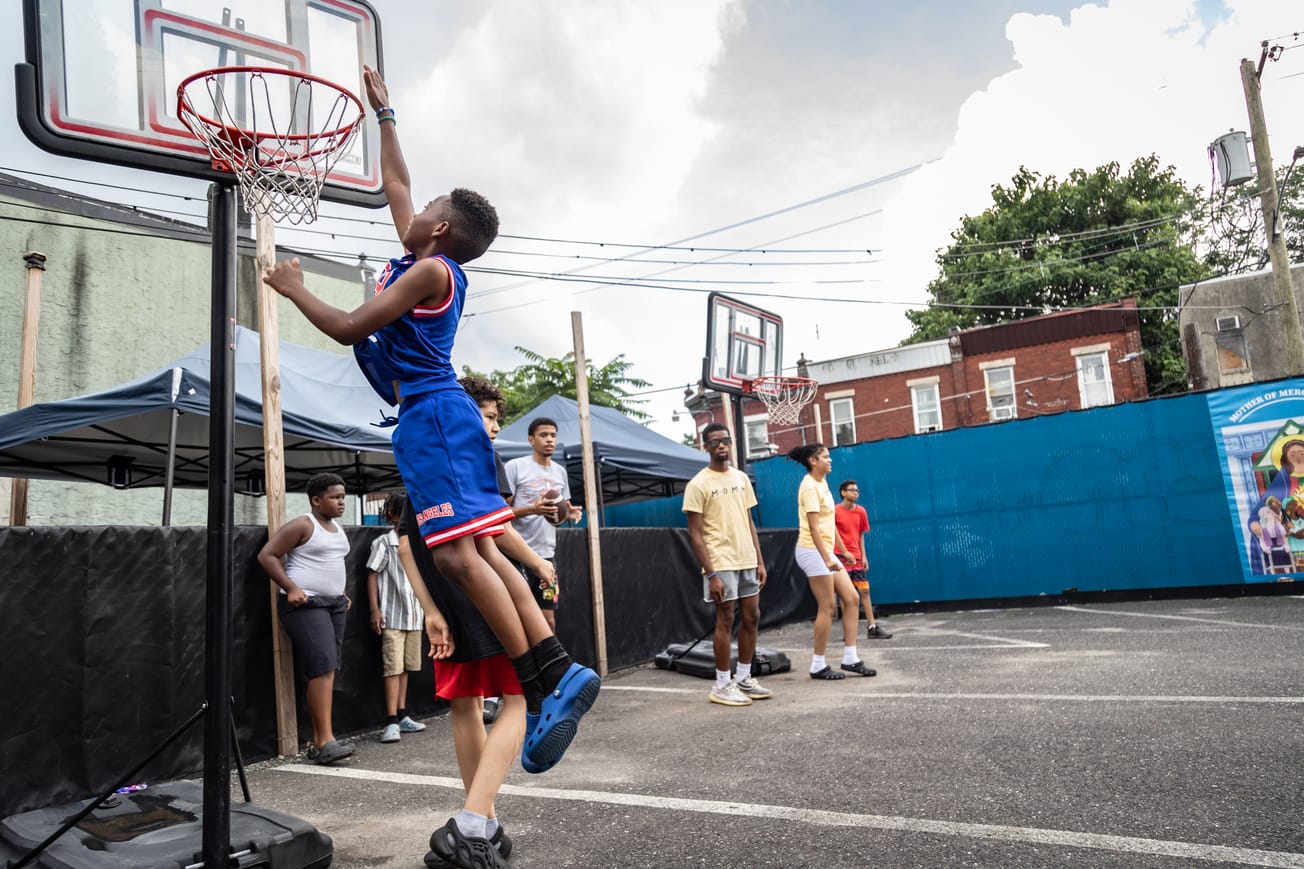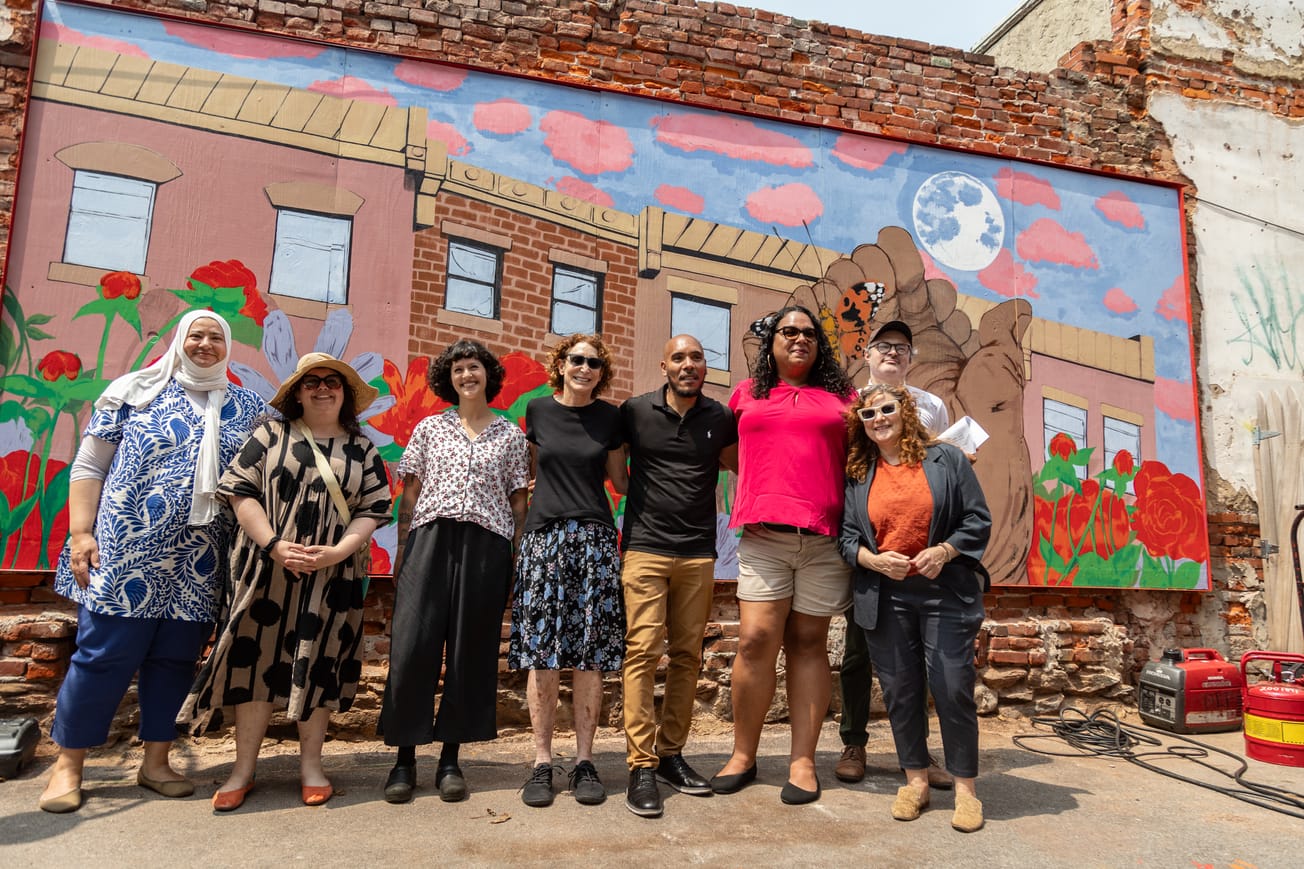When John Tomys was a teenager, he didn’t realize his decision to hot-wire a Mercedes would land him on the front lines of the Vietnam War. But it turned out the car he stole was owned by the wife of a judge who gave him two options: join the military or go to jail.
“I was 17, in shape, young, and dumb,” Tomys said. “I became an [Army] Ranger, went to airborne school — the whole nine yards.”
Tomys, who is now 66, served for three years on a long-range reconnaissance patrol scouting for Viet Cong forces deep in enemy-held territory. When he returned home to Dayton, Ohio, he struggled to find stable housing and medical treatment while suffering from addiction and post-traumatic stress disorder (PTSD). However, for more than three decades, he tried to manage those issues without any outside help.
There are more than 800,000 veterans in Pennsylvania, nearly 40% of whom, like Tomys, served in Vietnam. While veterans are entitled to a variety of benefits through the Department of Veterans Affairs (VA), according to a 2017 report from the VA, only 15% of Pennsylvania veterans received any disability compensation, 1% received pension, 3% were enrolled in education benefits, and less than half were enrolled in the VA health care system.
According to J.J. Fox, an intensive case manager at Impact Services’ veterans’ housing facility on Indiana Avenue near A Street, navigating the VA benefits system is complicated, and accessing benefits is much harder than it sounds. Common obstacles include difficulty getting referrals and ineligibility due to discharge status or how their disabilities were sustained. And according to veterans at these facilities, their distrust for the government stands in the way, too.
Veterans who are ineligible or unable to access VA benefits are forced to look toward neighborhood organizations for help — which according to Tomys, are helpful and much appreciated among veterans but can also lack the kinds of resources that VA facilities can provide.

Difficulty with the referral process
To receive benefits for housing, health care, or workforce development, Fox said veterans need a referral from a VA Medical Center, which provides health care services, or the Veterans Multi-Service Center (VMC), a tri-state area veteran service organization located on North 4th Street. Without a referral, service providers — like Impact Services — can’t treat veterans, she said.
To start the referral process, a veteran must be enrolled in the VA database, which they can do in person at a VA Medical Center or the VMC or online on the VA’s website. Then, once they are enrolled in the system, they need to find transportation to a service provider, where they can request a referral, Fox said. At these facilities, VA representatives assess the type of care a veteran needs, such as housing counseling, and their eligibility for such programs. However, that process often takes a lot of time, she said.
“It could take months and months because [paperwork] has to go through so many people,” said Fox.
Veterans like Jack Purdy, who lives at Impact’s 174 veterans housing facility located at Second Street and Allegheny Avenue, say that lack of affordable transportation is a major issue, too.
“Getting back and forth to my appointments on time at the VA — it’s a pain,” said Purdy. “Just to get to the VA and back, it’s $5. If you have to go anywhere in between, you get messed up.”

Ineligibility due to discharge status or how their disability was sustained
According to Fox, another obstacle veterans face while attempting to access their VA benefits is that their conduct in the military and their discharge status can disqualify them from receiving benefits.
If a veteran was honorably discharged, they are entitled to full medical coverage, housing allocations, and other counseling and transportation services through the VA, Fox said. However, for veterans who were dishonorably discharged, classified as ‘other than honorable,’ or received a court-martial — which is when a service member is accused of offenses against military law — the services available to them are limited.
“There are a lot of guys here that are ‘other than honorable,’” said Fox. “They’re eligible for Impact’s housing programs, but they might not be eligible for certain VA benefits.”
In these cases, Fox said that Impact works with the VA regional office to get their status changed so they can access other benefits.
Additionally, Fox said some vets might not be able to receive treatment because their disability or injury wasn’t sustained or worsened during their military service — a strict policy with few exceptions.
According to Molly Maguire, the coordinator for Philadelphia’s VA Homeless Services program, veterans commonly do not know if they are eligible for benefits. That’s why, Maguire said, her department focuses a lot of their time on outreach. Currently, Maguire’s staff members — nurses and social workers — go to non-VA facilities and city shelters each week.
“A veteran might think that they’re not eligible for these programs when they actually are eligible, so we definitely make a lot of effort to be present and to collaborate with the city outreach,” Maguire said.

Distrust for the government
However, while the VA’s outreach efforts prioritize getting veterans enrolled in the VA system and service-connected, veterans may still be hesitant to accept help if they don’t trust the institution, Tomys said.
Though Tomys eventually sought help from the VMC in 2009, it took him more than 30 years to reach out to the institution he initially swore off as a young man — a story he says is common.
“A lot of us when we came home absolutely hated the federal government,” Tomy said. “We didn’t want to have anything to do with it. That’s why for years, a lot of Vietnam vets didn’t even know that they had benefits.”
According to Robert, a veteran and jack-of-all-trades at The Last Stop recovery center on Somerset Street near Kensington Avenue, distrust in the government led some veterans, like himself, to avoid the VA and cope on their own through drugs, violence, and self-destruction.
“We don’t take advantage of some things with the VA because we’re frustrated with the government,” said Robert, who requested to use his first name only. “Or we come out of service with that party lifestyle, and it gets worse and worse.”
Though Robert returned from combat in 1978, he said he didn’t learn until 2005 that he was eligible for VA benefits. Today, he still doesn’t use the benefits available to him.
“I was trying to get my VA benefits, but they kept telling me, ‘You gotta do this, now take this physical, we still have to process the paperwork,'” Robert said. “I finally just said, ‘Screw y’all — I’ll just do my own.'”

The importance of community organizations
For Maguire’s outreach team, working with community organizations to engage, address, and ideally treat veterans with the care they need is key, she said. She said some organizations have contracted partnerships with the VA through workforce development and housing programs, while other relationships can be less formal and more grassroots.
In Kensington, veterans have access to services through various community organizations. At Impact, FreshStart, and Edison 64’s supportive housing facilities, — which all operate in partnership with the VA — veterans receive a similar spectrum of care that includes transitional or permanent supportive housing, career counseling, and transportation services.
“The service [at these facilities] is case management,” said Bruce Washington, case manager for FreshStart’s veteran transitional housing facility. “Of course, also by making sure that they’re in a clean, safe, and drug-free environment to sleep and trying to help them get back on track.”
Rock Ministries and The Last Stop don’t provide social services like housing and case management, but instead give veterans access to safe spaces, free meals, and a community with others experiencing similar issues. They also serve as connectors to outside resources, such as the services offered by the VA.
“We have connections with other people, so we try to get them at least a foot ahead,” said Ramon Crespo, the community liaison at Rock Ministries. “Something that will help them skip that phone call that’s going to take you hours.”

Finding trust in the VA
Looking back at his return from service, Tomys said he didn’t even know of the benefits available to him at the time. He remembers experiencing isolation from society, distrust in the government that drafted him, and the traumatic effects of the war — a fate that he saw many veterans face, Tomys said.
Now, after finding permanent housing, Tomys hopes veterans, who have yet to apply for these benefits, will give it a chance.
“There’s no reason that a Vet should stay on the street,” he said. “There’s a place for you — they will help. You just have to surrender yourself. You put up a good fight — I know I did — and you’ve got to know when you’ve lost ’em.”
Despite the services provided to Kensington’s veterans by various community organizations and the VA’s attempt to further engage them, veterans in the neighborhood would still like to see improvements.
“Veterans need jobs. They need access to work. They need access to travel,” said Robert. “I can’t put it all on the VA, but should there be more resources? Yes. There should be more for a person in the military.”
Editors: Zari Tarazona, Jillian Bauer-Reese / Story Designer: Jillian Bauer-Reese / Translator: Diana Cristancho





